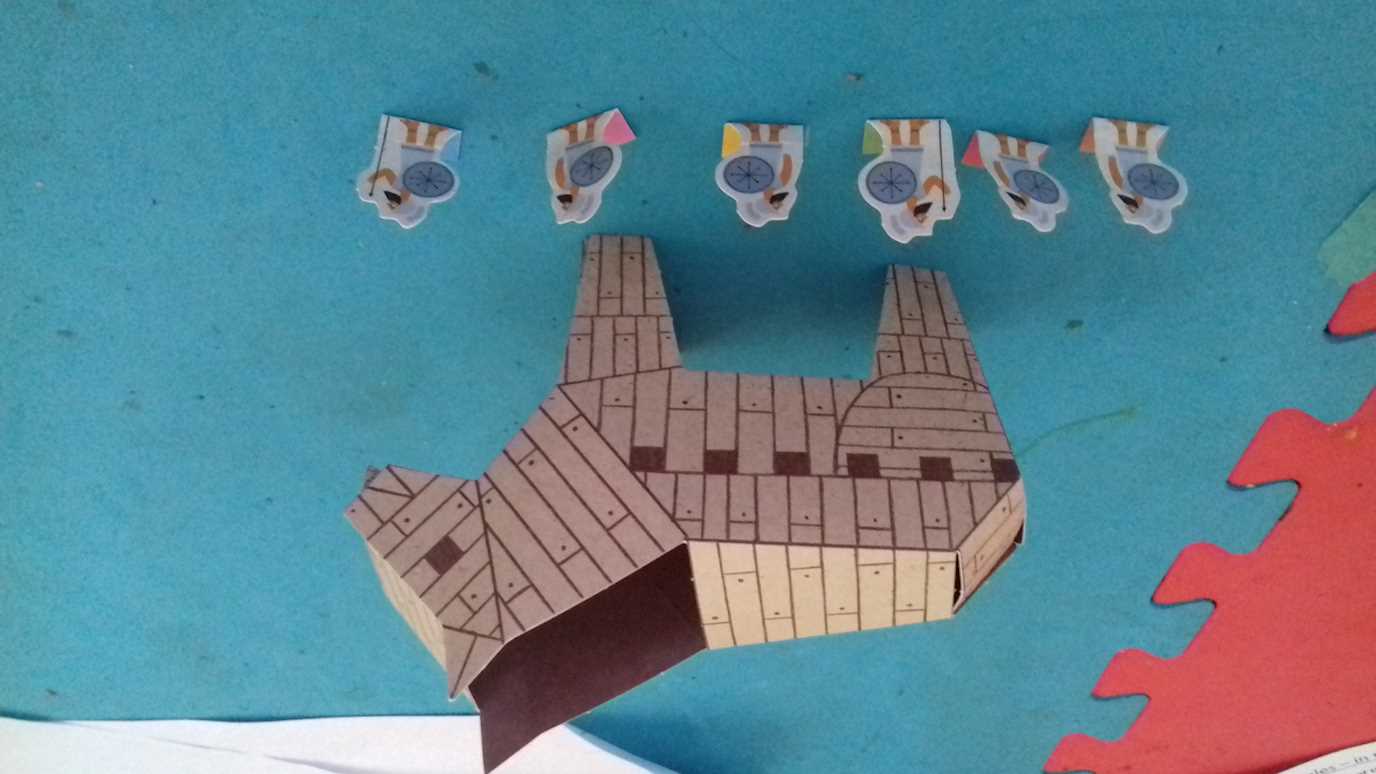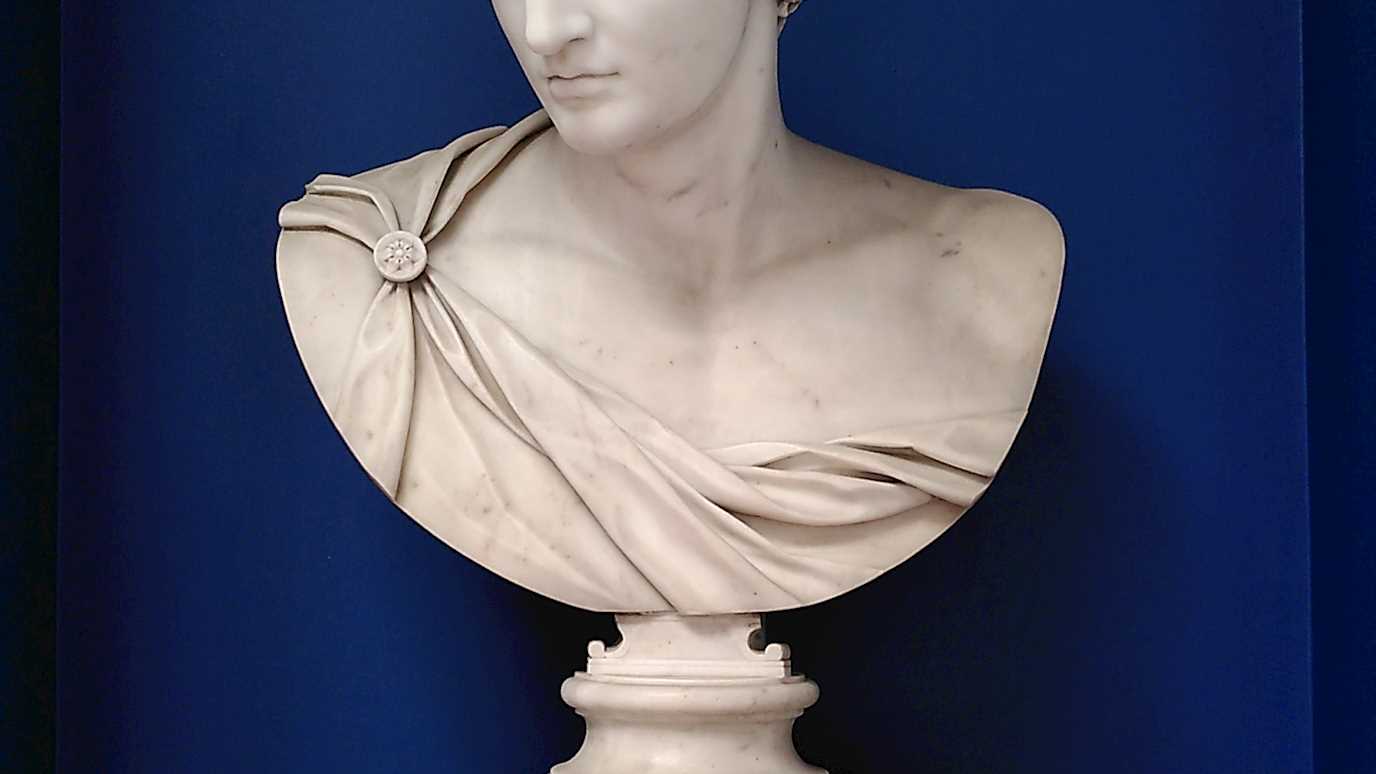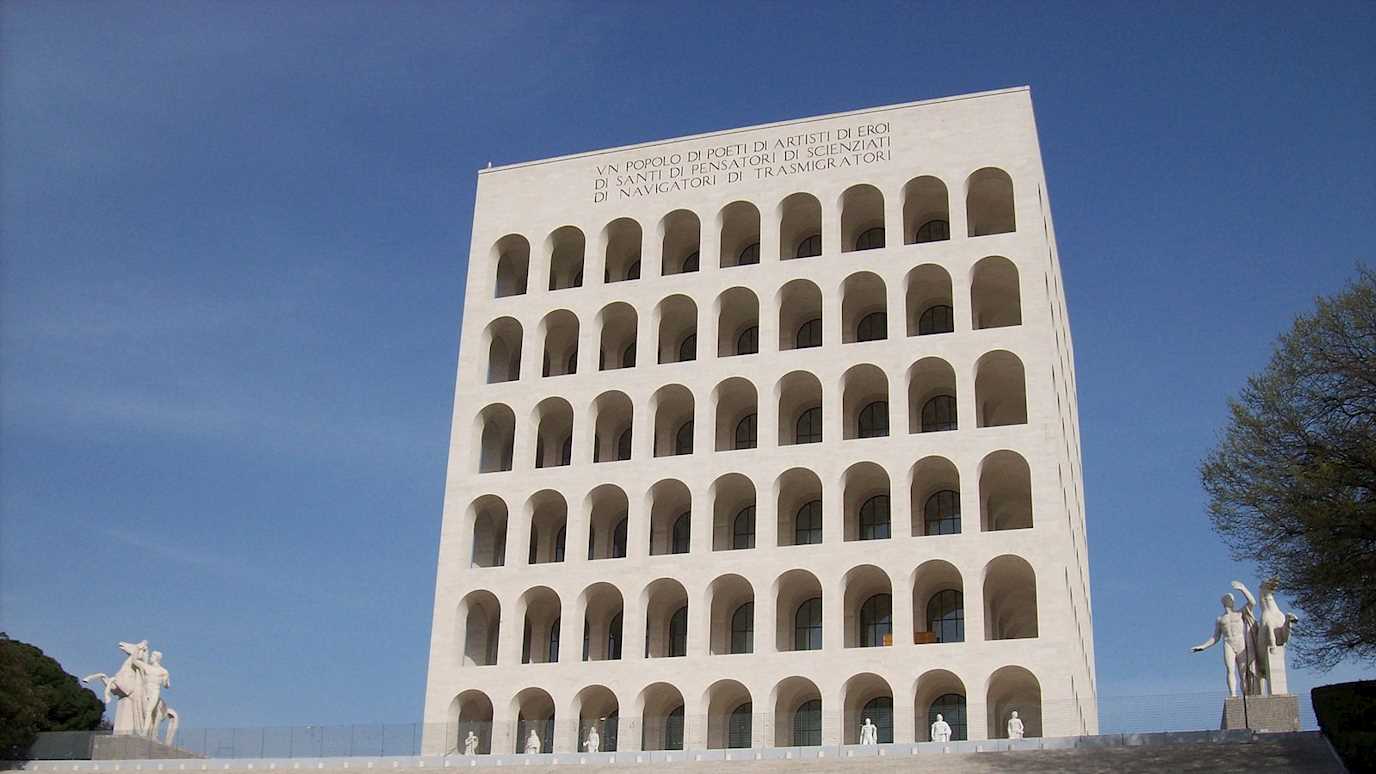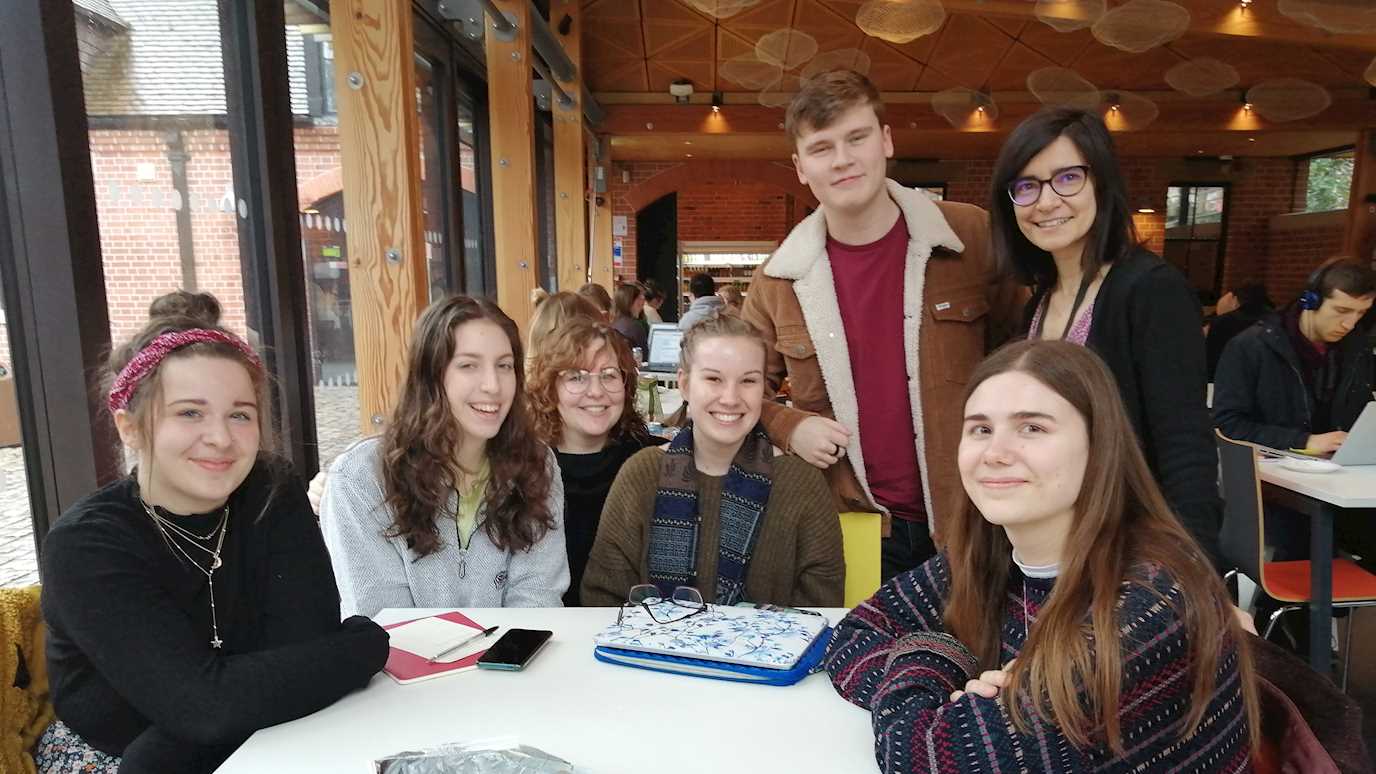Major current projects include:
- Three Classicizing Capitals - Prof. Richard Alston
- Classical monsters in popular culture - Dr. Liz Gloyn
- Heritage, crafting and well-being in post-conflict contexts – Dr. Zena Kamash
- Science fiction and the fantastic in classical literature - Dr. Nick Lowe
- The Girl in the Myth/Book: radical imperceptibility in classical narratives and modern retakes - Dr. Efi Spentzou
- Myth and Voice: classical reception in programs of social empowerment and community building - Dr. Efi Spentzou
Publications
The Centre has a distinguished publication record; these are some recent highlights of our various books, chapters and articles.
Richard Alston, Edith Hall, Justine McConnell, Ancient Slavery and Abolition: From Hobbes to Hollywood. Oxford University Press, 2011.
Richard Alston, Edith Hall, and Laura Proffitt. Reading Ancient Slavery. London: Bristol Classical, 2011.
Richard Alston and Shreyaa Bhatt, Foucault's Rome (Foucault Studies, 22) (2017).
Liz Gloyn. Tracking Classical Monsters in Popular Culture. Bloomsbury Academic, 2019.
William Fitzgerald and Efrossini Spentzou, The Production of Space in Latin Literature. Oxford University Press, 2018.
Nick Lowe. "The Rational Irrationalist: Dodds and the Paranormal." Rediscovering E.R. Dodds: Scholarship, Education, Poetry, and the Paranormal, eds. Christopher Stray, Christopher Pelling and Stephen Harrison. Oxford University Press, 2019.
Efi’s Orpheus, Byblis, Myrrha: Towards a Matrixial Ethics of Encounter in Ovid’s Metamorphoses
Nick - “How to become a hero” in Our Mythical Hope: The Ancient Myths as Medicine for the Harships of Life in Children’s and Young Adults’ Culture, ed. Katarzyna Marciniak, University of Warsaw Press, 2021: 193-210.
My Mazes Intricate: The Minotaur As A Catalyst of Identity Formation in British Young Adult Fiction
Past Projects
Bringing Iphigenia Home
with Tony Harrison
The evolution of Harrison's version runs in parallel with the academic project Adventures with Iphigenia: Euripides' Black Sea Tragedy in Historical Perspective
Edith Hall is beginning the research for a new study of the impact of Euripides' now neglected tragedy Iphigenia among the Taurians, to be published by OUP New York and presented as work in progress in conjunction with the Onassis Series in Hellenic Culture in lectures during 2010 and 2012: see http://www.onassisusa.org/usp.series.htm. This Iphigenia is the nearest thing to a 'quest heroine' in ancient drama: intelligent, courageous, and specially loved by the goddess Artemis, she secures her escape, with her brother Orestes, from the remote corner of the Black Sea (near Sebastopol in the modern Crimea), in the land of the Taurian barbarians where they have both been stranded. This book examines the cultural impact of her remarkable tragedy from its first performance in the penultimate decade of the fifth century BCE to the third millennium. In the first six of twelve chapters, the importance of her adventures in cultural history are traced from fifth-century Athens and the cult of Artemis in Attica, through the fourth-century export of Greek tragedy across the Mediterranean world as reflected in vase-painting, to the drama and theatre of Republican and Augustan Rome, the wall-paintings of Pompeii and the sarcophagi carved across the Roman Empire, to the escapades of heroines in the ancient novel, the comic theatre of Oxyrhynchus and the tirades against human sacrifice and pagan mythology to be found in the early Church fathers.
The second half picks up the story in the Renaissance, and follows Iphigenia's adventures in opera, dance, spoken theatre, the visual arts, and poetry, across every continent of the modern world. Although this play inspired high-profile adaptations by Goethe and Gluck, the original Euripidean version did not receive its UK premiere in 1887 at Bedford College, London, later to be merged with the CRGR's own Royal Holloway.
It is hoped one day to see a new translation of the play performed in the ancient theatre at Chersonesos in the western Crimea; the poet and dramatist Tony Harrison has agreed to collaborate provisionally, with the Black Sea archaeologist David Braund to act as our consultant. At the end of the journey it is hoped that something will have been added to our understanding of the diffusion and continuing cultural influence of ancient Hellenic myth and drama, as well as an answer provided to the question of why this particular play was so beloved by the inhabitants of the pagan ancient Mediterranean themselves. IT's central interests seem always to have been, as they are today, female intelligence, male friendship, family reunion, ethnic difference, religious ritual, exile, escape, and survival.
Chapter Titles
- Iphigenia in Attica: Aide to Artemis
- Iphigenia in the Black Sea: Colonial Encounter
- Iphigenia in South Italy: Intriguing Spectacles
- Iphigenia in Rome and Tomi: Roman Men and their Emotions
- Iphigenia in Oxyrhynchus and India: Greek Tragedy for Everyone
- Iphigenia across the Roman Empire: Prose Transformations
- Iphigenia in the Florentine Renaissance: Greek Page to Italian Stage
- Iphigenia in Enlightenment Paris and London
- Iphigenia in St Petersburg: the Russian Annexation of Tauride
- Iphigenia in Weimar: Goethe, Gender, Colonialism, and Classicism
- Iphigenia in the Avant-Garde Dance Theatre
- Iphigenia in the Global Village
AHRC Collaborative Doctoral Award 2010-2013
Centre for the Reception of Greece & Rome in collaboration with Northern Broadsides Theatre Company
The writer and director Helen Eastman has been awarded our collaborative doctoral studentship to investigate the past and incipient productions of ancient Greek drama by this touring theatre company, jointly supervised by Edith Hall at the CRGR, Barrie Rutter and Sue Andrews (Artistic Director and Executive Director of Northern Broadsides respectively).
The project addresses the history of performances of ancient Greek drama by Northern Broadsides. The company's interest in Greek theatre was inspired by its performance in 1995 of two new plays by Tony Harrison which adapted material from ancient Greek and Roman literature and drama, The Labourers of Herakles and The Kaisers of Carnuntum, followed in 1998 by a production of Harrison's adaptation of a Sophoclean satyr play in The Trackers of Oxyrhynchus. Thereafter, Northern Broadsides applied its unique performance approach to ancient Greek plays including Euripides' Alcestis in Ted Hughes' version (2000), Sophocles' Oedipus (2001) and Antigone (2003) and Aristophanes' Lysistrata (under the title Lisa's Sex Strike, 2007) in the Yorkshire-dialect translations of Blake Morrison. It also staged Tom Paulin's translation of Euripides' Medea (2010).
The research will contribute exactly the kind of cultural inputs to the public cultural sector that have been developed in the course of previous AHRC-funded research by Edith Hall at Oxford University's APGRD, which she co-founded. This research project has actually been singled out for praise on the AHRC website 'impact' page, on the grounds that it has deepened the quality of contemporary productions of classical theatre, drawn in new audiences, brought acclaim to the UK theatre sector, strengthened it by helping to develop new skills, insights and ways of working for creative artists, and helped to create an appetite for classical theatre through public engagement activities. The work of Northern Broadsides has also earned it great respect and made a public impact acknowledged to be wholly out of proportion with its tiny size and finances, praised by Michael Billington in the Guardian (14/09/09) for having created 'a public hunger not only for Shakespeare but for Greek tragedy', and described in the Liverpool Daily Post (5/11/3) as revealing that Greek tragedy could be 'gripping entertainment'. Numerous reviews of its Greek plays echo that of its Alcestis in the Independent, which reported that produced in an audience of initially unresponsive teenagers 'a transformation that was...unexpected and magical' and gales of applause (23/09/2000). This collaborative project will foster interest in the ancient classics within performance culture, enhancing creative endeavour and output and international understanding of the collectively owned cultural past. As Northern Broadsides' own company slogan puts it: 'maximum impact-minimum paraphernalia'.
Classics and the New Faces of Feminism
Following an enthusiastic response, we were delighted to host an intensive, interactive, and inter-disciplinary “sandpit” at the Institute of Classical Studies on Saturday 31 January 2015 sponsored by the Centre for the Reception for Greece and Rome and the Humanities and Arts Research Centre at Royal Holloway, the Bristol Institute for Research in the Humanities and Arts, the Institute of Classical Studies, and the Council of University Classics Departments.
The aim of the sandpit was to bring together researchers to share their interests in the dynamic dialogues taking place between Classics and contemporary feminism.
Key provocations included (though this is a far from complete list):
-
What are the current sites of feminist knowledge and understanding? Do we live in a post-feminist world? What is distinctive, if anything, about the European dimension/dialogue compared with the American/French domination of earlier though still resonant feminisms?
-
Is there still a place for feminism in Classics or are feminist politics no longer pertinent to (our) Classical scholarship? Can the Classics make a difference in the current developments and debates in feminist thought?
-
What are the contemporary voices/issues that inspire graduate students and those entering the Classical professions?
-
Feminist approaches flourish in Classical Reception, but what about feminist studies of the Classical world itself? Are such studies forgotten?
We were proud to host a mix of senior scholars and emerging young voices from across the Humanities from the UK, France, Italy, Netherlands, United States, and Australia. We had a programme that makes space for engagement with issues as diverse as philosophy, science, pedagogy, contemporary women’s writing, intersectionality, motherhood.
Antiquity and the Ruin: Time, Fragmentarity, Emotion and the Reception of the Past

Several members of the CRGR spoke at this conference, convened June 5th to 8th 2008 at the University of London Institute in Paris by CRGR Co-Director Ahuvia Kahane and Professor Anastasia Serghidou of the University of Crete.
The proceedings will be published as a Special Issue of the European Review of History / Revue Européenne d'histoire. For an account of the conference and summaries of the papers, including those by CRGR staff, please click here for a report by Professor Catharine Edwards (Birkbeck College, London).
Antiquity and the Ruin
Ahuvia Kahane (ed.) (special double issue of European Review of History 18.5-6, 2011)
The question of ‘antiquity and the ruin’ poses a difficult, but interesting challenge, since the ruin inherently resists many otherwise useful temporal, disciplinary and other boundaries: it is an object that belongs as much in the present as it does in the past, it is a material object that is not what it is (or what it was), which cannot be used for its own purpose, and which is meaningless without its missing parts qua missing parts (we will comment further on these points below). Practically, one can, to be sure, focus the discussion on classical antiquity. Most of the contributions to this collection do indeed explore aspects of the idea of ruins in the Greco-Roman world. The problem is that to have stopped there – the essays in this volume do not – would have meant describing only a part of the essential object in question. By placing firm boundaries on the ruin in antiquity we risk defining it precisely, but too narrowly for the good of the topic itself, creating a well-rounded but misleading ‘whole’ by cutting off essential loose ends. Such wholeness goes against the nature of the ruin, in antiquity, and throughout history. The challenge for this volume, then, was how not to cut off those ends: how, in other words, to discuss the question of ‘antiquity and the ruin’, placing large, sprawling themes squarely in the foreground yet within the confines of a single volume. To meet this challenge, we invited scholars of varying persuasions and interests to contribute essays on the imagination of ruins in Rome (Edwards), on literary fragments (an important form of verbal ruins, discussed by duBois and Pucci), on the aesthetics of the ruin in antiquity (Porter and Alston, each adopting a different perspective), on the dual qualities of ruins in antiquity and beyond (in contributions by Settis, Schnapp, and, setting a wider context, by Vallat), on some receptions of ancient ruins in modernity (Hall and Wittenburg), on the ethical relation of the ruin to the past in modernity (Zill) and finally, on the ‘modernity’ of ancient ruins (Kahane). The result is not a handbook of the ruin in antiquity, not a ‘companion’, not, to be sure, an exhaustive survey, but a composite set of images that trace the wider arcs of our topic.
Reading Ancient Slavery
Richard Alston, Edith Hall, and Laura Proffitt (eds.) (Duckworth January 2010)
One of two books arising out of our 2007 conference on slavery. Evidence relating to the 'real world' of antiquity - inscriptions, historiography, and legal speeches - has dominated studies of ancient Greek and Roman slavery, although providing few direct accounts by slaves of their subjective experiences. Yet the imaginative fictions produced by the ancient psyche in its literature and art provide many representations and discussions of what it felt like to be a slave. This volume arises out of a conference held in 2007 at the Centre for the Reception of Greece and Rome at Royal Holloway and the British Museum in order to celebrate the bicentenary of the abolition of the slave trade in the British Colonies; it provides a sustained discussion of the theory and practice of handling ancient poetry and images in order to enhance our understanding of the way that slavery was experienced by both slaves and their owners in the ancient world. Twelve essays by an international team of specialists develop a variety of theoretical positions, reading practices and interpretive strategies for recovering the psychological and emotional as well as social impact of ancient slavery from Homer, Aristotle, Greek drama, visual images, Roman Poetry and Imperial Roman dream interpretation.
https://www.bloomsbury.com/uk/reading-ancient-slavery-9780715638682/

India, Greece and Rome 1757-2007.
Edith Hall and Phiroze Vasunia (eds.) (BICS supplement 108, London 2010)
The Return of Ulysses: A Cultural History of Homer's Odyssey.
Edith Hall (I.B. Tauris / Johns Hopkins University Press, 2008)
'Is there anything in the Western literary canon with more abundant, potent or frolicsome offspring than Homer's ODYSSEY? Clearly not, to judge by THE RETURN OF ULYSSES, Edith Hall's enlightening and entertaining cultural history… Hall… fills her pages with sharp and often surprising observations about the ODYSSEY and its spiritual children… Reading her good-humored and accessible book is like conversing across the ages' [Steve Coates]
Reviews in:
Interviews available online:
- Hear Edith Hall's interview with Lewis Lapham on Bloomberg Radio.
- Hear an interview about the book with WICH Public Radio.
Ancient Slavery and Abolition: From Hobbes to Hollywood
Richard Alston, Edith Hall and Justine McConnell (eds.)
This volume, contracted to OUP, is one of two resulting from our inaugural conference in 2007, which marked the biennium of the abolition of the slave trade in the British colonies. The book provides, for the first time, an in-depth discussion of the cultural memory of ancient Greek and Roman slavery in the struggle to abolish slavery from the late 17th century onwards. Thirteen essays by an international team of historians and literature specialists address the presence of ancient Greeks and Romans in the arguments framed by both opponents and defenders of slavery in Britain, North America and South Africa, and, after emancipation in North America (1865), the lingering presence of classical antiquity in representations of Atlantic slavery in 20th-century writing and cinema. The sources include ancient and modern philosophy, poetry, political speeches, polemical literature, classical scholarship, the visual arts, fiction and theatre; the voices brought back to life belong to former slaves as well as slave-owners and ardent emancipationists.
























